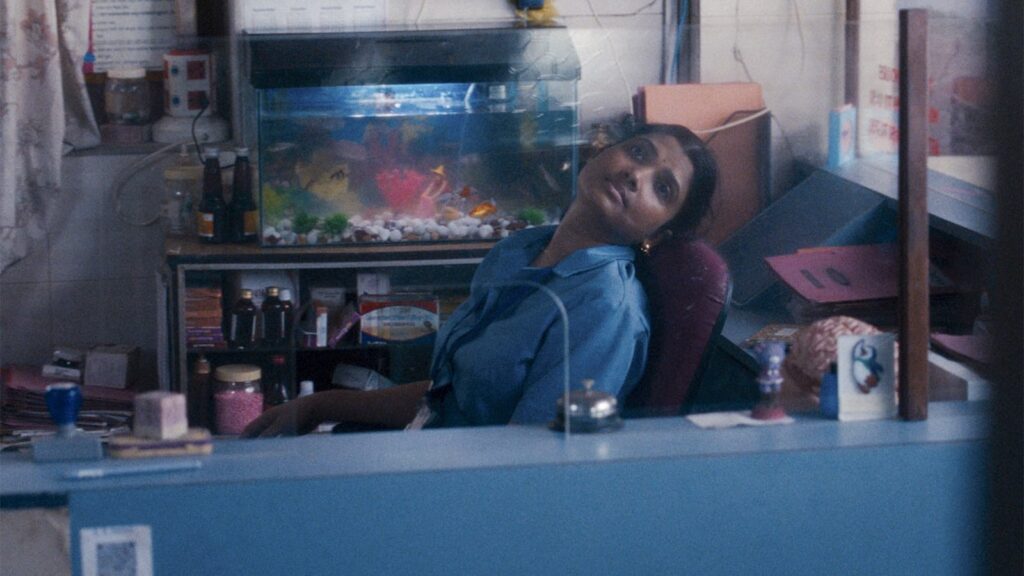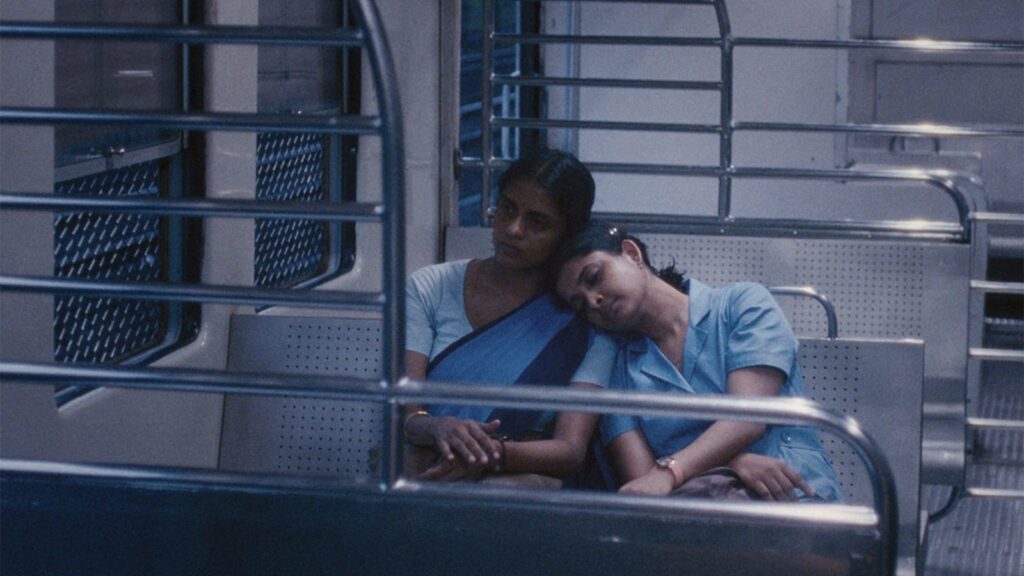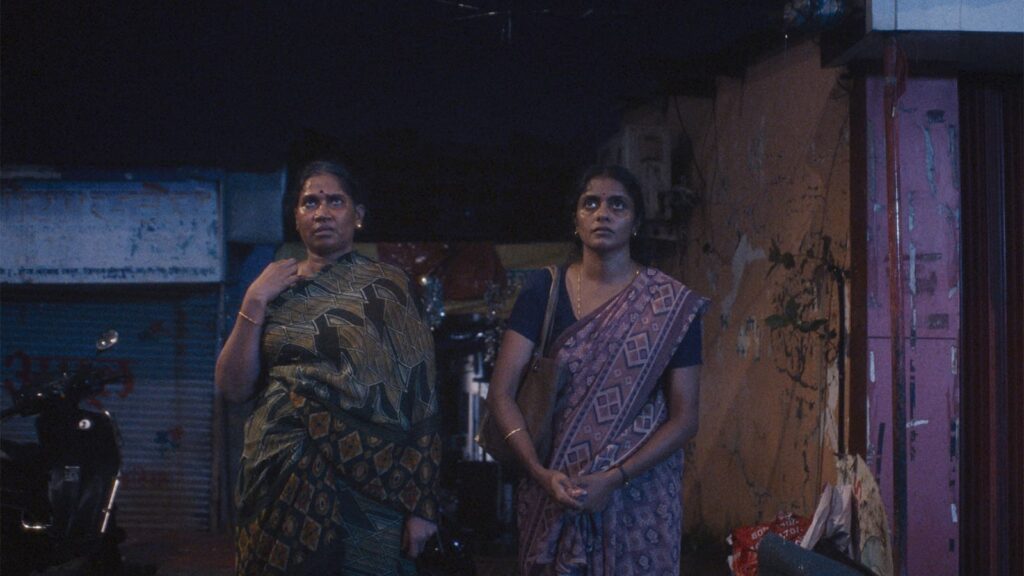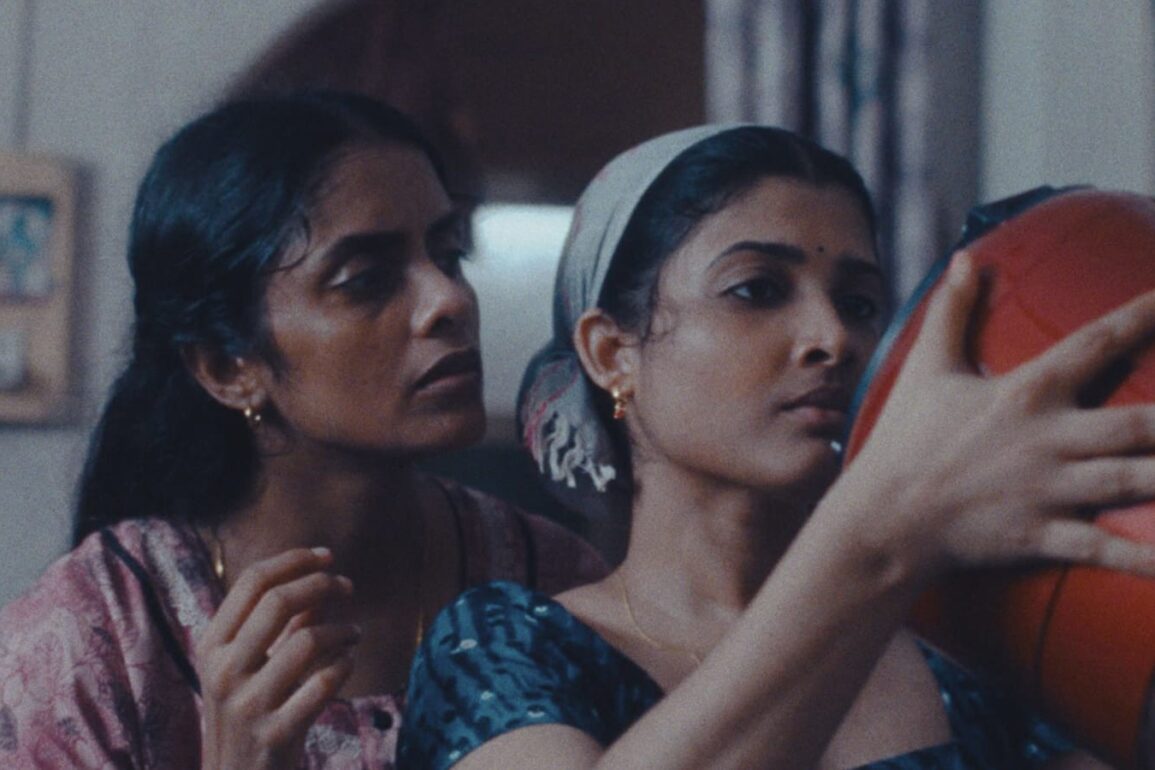Last year’s Cannes Grand Prix winner shows us that there’s beauty and joy to be found in the simplest things. And sometimes, these are more than enough to get us through another day.
The ordinary person—more so the ordinary woman—doesn’t always make it to the big screen. Her everyday struggles, however, could make for a thousand different films, even songs, novels, and poems. And Payal Kapadia’s debut feature film All We Imagine as Light, that puts the ordinary woman front and center, is what I imagine poetry made into a film to be.
A Grand Prix winner (runner-up) at last year’s Cannes Film Festival, this tender yet unexpectedly potent film follows three friends who work at the same hospital in Mumbai. There’s calm and collected Prabha (Kani Kusruti), a senior nurse; her younger, more carefree colleague and roommate Anu (Divya Prabha); and Parvaty (Chhaya Kadam), a cook at the hospital and Prabha’s close friend. Each of them is going through personal troubles—woes that are all-too familiar with the everyday woman, wherever she may be in the world.
Related story: REVIEW: Not just cute—5 wildly good reasons to watch ‘Secrets of the Penguins’
Related story: REVIEW: ‘Mission: Impossible-The Final Reckoning’ reminds us why we still love big, real action movies






Prabha longs for her husband who lives in Germany and who hasn’t called her in over a year. One night, a rice cooker from an anonymous sender was delivered to the home she shares with Anu, who reads from the label underneath that the appliance was Made in Germany. The thought that it might be a gift from her estranged husband rattled the usually composed Prabha, and awakened in her a profound, aching loneliness that culminates in the most emotionally charged scene of the film—Prabha hugging the rice cooker on the floor.
Anu, meanwhile, despite being suffused with the warmth of young love, is in a terrible predicament: her boyfriend Shiaz is a Muslim, and inter-faith relationships in Hindu-majority India are frowned upon. The forbidden relationship, sweet and earnest it may be, has become fodder for gossip at the hospital where Anu works. The lovers can’t even check in a love hotel and would have to make do with making out in the dark corners of public places. In the film’s funniest sequence, Anu even had to don a burqa so she can go on a booty call at Shiaz’s house when his cousins went out of town to attend a wedding—but alas! The wedding was cancelled and Anu was left contemplating her future—if there is any—with Shiaz, while holding the now useless burqa.
Lastly, there is recently widowed Parvaty who has the most urgent problem of our three protagonists. She is about to be evicted by a greedy contractor from her chawl (a tenement housing common in Mumbai), where she has lived for 22 years. Her husband left her no papers proving that she, indeed, owns the place, leaving her with nothing but her simmering rage against the developers. Parvaty was gifted with some of the best lines in the film, the most compelling, and the ones which best encapsulate her situation, were the ones she uttered to Prabha over dinner on her last evening at her Mumbai home: “You only seem to be real if you have papers. You could just vanish to thin air (if you have no papers) and no one would even know.” In another light moment, the two friends threw a large rock each to the fence of the construction site before being chased by a caretaker. Go girls!
Related story: REVIEW: Equal parts witty and earnest, ‘A Real Pain’ is a real treat
Related story: REVIEW: Latvian film ‘Flow’ is a breath of fresh air in the world of animation






The first half of All We Imagine as Light ends in the scene which immediately follows, where Prabha rejects the affections of kindly Dr. Manoj (Azees Nedumangad). We never return to Mumbai for the remainder of the film. But Mumbai, the sixth-most populous metropolitan area in the world with a population of 23 million, is more than just a setting—it’s also a character, one that looms over the lives of Prabha, Anu, and Parvaty. Mumbai is inescapable; it is an omnipresence.
Like Metro Manila, Mumbai is a melting pot of people from all over the Indian subcontinent, each one looking for a better life. For our three protagonists, it never truly feels like home, but they have to believe in its “illusion,” as mentioned in the second montage of voiceovers, because to do otherwise will drive them mad. And surely, the ladies find ways to overcome the chaos, to survive and carve a space of their own without being consumed by the Mumbai’s overwhelming energy.
It is, indeed, some sort of a relief when, in the second half of the film, Prabha and Anu accompany Parvaty back to her village near Ratnagiri in Maharashtra, Western India. This is where the film gently crescendos to its resolution: Prabha finally letting go of her husband, Anu and Shiaz finally consummating (heh) and deciding to fight for their love, and Parvaty embarking the first day of her new life back home.
Related story: REVIEW ‘Black Mirror’ Season 7: Tinker, voyeur, soldier, cry
Related story: REVIEW: ‘White Lotus’ Season 3—no neat endings in paradise



All We Imagine as Light takes on a rhythm not so different from a sonnet—radiant and almost dreamlike. Even Mumbai seemed a tad subdued. There is no shouting, no violence, nothing extreme. Just three women going about their daily lives, trying to figure out how to get through the longing, sadness, and the immutable fact that life can be unfair. With their quiet, dignified resolve and their heartfelt friendship, Prabha, Anu, and Parvaty show us that amid life’s chaos, there’s beauty and joy to be found in the little things—a stolen hug, a gifted poem, a dinner at a familiar restaurant, a movie with friends. And sometimes, these little things are more than enough to get us through another day.
Related story: REVIEW: ‘Colin from Accounts’ is not your usual boy-meet-girl rom-com, that’s why you should watch it
Related story: REVIEW: ‘The Four Seasons’ is a beautiful blip
Watch the trailer here:







